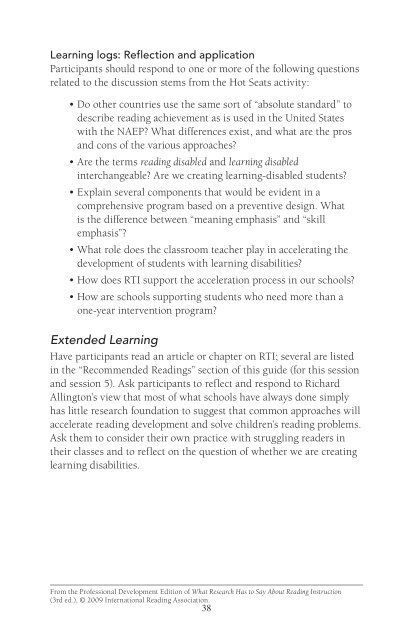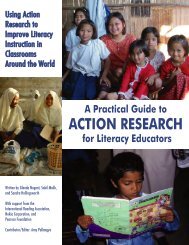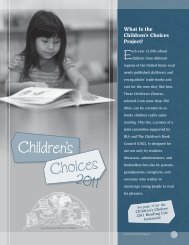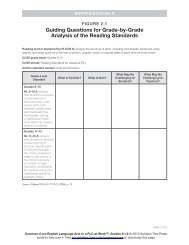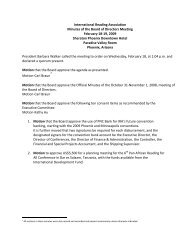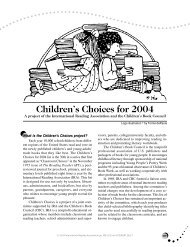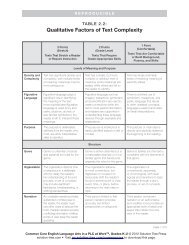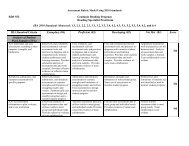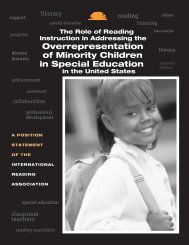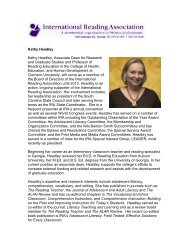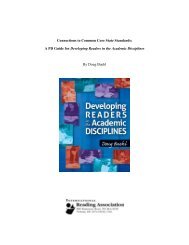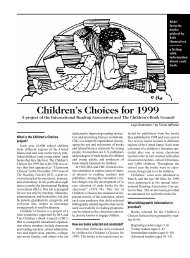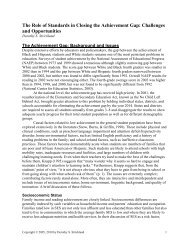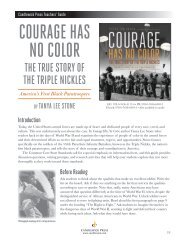What Research Has to Say About Reading Instruction - International ...
What Research Has to Say About Reading Instruction - International ...
What Research Has to Say About Reading Instruction - International ...
You also want an ePaper? Increase the reach of your titles
YUMPU automatically turns print PDFs into web optimized ePapers that Google loves.
Learning logs: Reflection and application<br />
Participants should respond <strong>to</strong> one or more of the following questions<br />
related <strong>to</strong> the discussion stems from the Hot Seats activity:<br />
• Do other countries use the same sort of “absolute standard” <strong>to</strong><br />
describe reading achievement as is used in the United States<br />
with the NAEP? <strong>What</strong> differences exist, and what are the pros<br />
and cons of the various approaches?<br />
• Are the terms reading disabled and learning disabled<br />
interchangeable? Are we creating learning-disabled students?<br />
• Explain several components that would be evident in a<br />
comprehensive program based on a preventive design. <strong>What</strong><br />
is the difference between “meaning emphasis” and “skill<br />
emphasis”?<br />
• <strong>What</strong> role does the classroom teacher play in accelerating the<br />
development of students with learning disabilities?<br />
• How does RTI support the acceleration process in our schools?<br />
• How are schools supporting students who need more than a<br />
one-year intervention program?<br />
Extended Learning<br />
Have participants read an article or chapter on RTI; several are listed<br />
in the “Recommended <strong>Reading</strong>s” section of this guide (for this session<br />
and session 5). Ask participants <strong>to</strong> reflect and respond <strong>to</strong> Richard<br />
Alling<strong>to</strong>n’s view that most of what schools have always done simply<br />
has little research foundation <strong>to</strong> suggest that common approaches will<br />
accelerate reading development and solve children’s reading problems.<br />
Ask them <strong>to</strong> consider their own practice with struggling readers in<br />
their classes and <strong>to</strong> reflect on the question of whether we are creating<br />
learning disabilities.<br />
From the Professional Development Edition of <strong>What</strong> <strong>Research</strong> <strong>Has</strong> <strong>to</strong> <strong>Say</strong> <strong>About</strong> <strong>Reading</strong> <strong>Instruction</strong><br />
(3rd ed.), © 2009 <strong>International</strong> <strong>Reading</strong> Association.<br />
38


